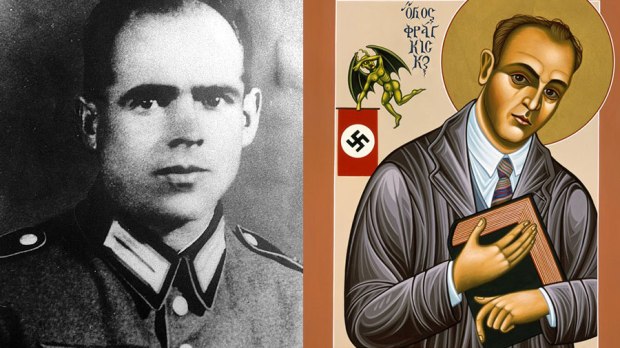The book upon which the Terrence Malick film A Hidden Life is based is being reissued by Catholic publisher Orbis Books.
A Hidden Life is about Franz Jäggerstätter, an Austrian Catholic who refused to fight for the Nazis. A farmer, devoted husband and father, Jäggerstätter was executed in 1943. He was beatified in 2007, in the pontificate of Pope Benedict XVI.
The Orbis book, Franz Jäggerstätter: Letters and Writings From Prison, includes the correspondence between Franz and his wife Franziska and a series of reflections he wrote while in prison. It is the first complete English translation of Jäggerstätter’s writings.
Robert Ellsberg, publisher of Orbis Books, told Catholic News Service that he decided to publish Jäggerstätter’s letters after reading Gordon Zahn’s 1964 book In Solitary Witness: The Life and Death of Franz Jagerstatter. He said it was “really the book that made Jäggerstätter’s story known to the world. It had an effect on me personally. … It’s why I leapt at the opportunity to publish these letters.”
Then, shortly after publication, he got a call from Elisabeth Bentley, a former college student of his, who was producing a film about Jäggerstätter. “She was interested in acquiring the film rights to the book we had just published” in 2009, he said. “We made an agreement with her, and she was working on a screenplay for some years, and also trying to find a director.
“Many years went by, and I read in a trade publication that Terence Malick was doing a movie on Franz Jäggerstätter, so I contacted Lizzie and said, ‘Do you know about this?’ and she says, ‘Yes, that’s our film.’ I did not know Malick had stepped in until that point.”
Ellsberg plans to write an online publisher’s note about the film and the book. “Anybody who is interested in pursuing more information about Jäggerstätter will certainly come upon the book, and that will lead people deeper into this story and his own words,” he told CNS.
“What was unusual about Jäggerstätter, of course, is that he was an ordinary man, not a great scholar and theological mind like Thomas More,” he said. “Just an ordinary farmer.”
He noted that Jäggerstätter made his decision to resist service to the Nazis in spite of not having the support of his pastor or bishop. “It raises the question: What was it about Jäggerstätter that made him see things in this way? All of us can strongly object to a president, for instance, or a policy, but when it comes down to laying down our life, leaving our children orphans or a wife widowed, left to endure the scorn of her neighbors, because of your strong convictions about what your faith demands that you do?” he commented.

